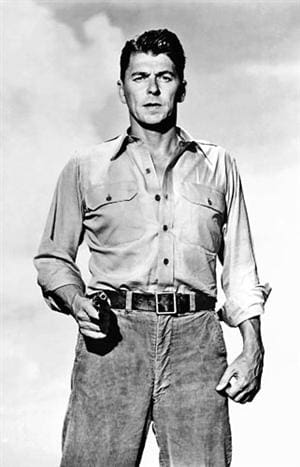Over the past 40 years, I’ve been paid to write more than two million words. Sooner or later, every one of them came back to the issue of guns and gun-ownership. People accuse me of being a single-issue writer, a single-issue thinker and a single-issue voter. It isn’t true. In a world where there’s never enough time and energy, I’ve chosen to focus on the one political issue which most clearly and unmistakably demonstrates what any politician — or political philosophy — is made of, right down to the creamy liquid center.
Make no mistake: all politicians — even those ostensibly on the side of guns and gun ownership — hate the issue and anyone, like me, who insists on bringing it up. They hate it because because it’s an X-ray machine. It’s a Vulcan mind-meld. It’s the ultimate test to which any politician — or political philosophy — can be put.
If a politician isn’t perfectly comfortable with the idea of any citizen walking into a hardware store and paying cash for a rifle, shotgun, handgun or other firearm without producing an ID or signing one scrap of paper, he isn’t your friend. No matter what he tells you.
If he isn’t genuinely enthusiastic about his average constituent stuffing that weapon into a purse or pocket or tucking it under a coat and walking home without asking anybody’s permission, he’s a four-flusher, no matter what he claims.
His attitude towards your ownership and use of weapons is a perfect litmus test. If he supports restrictions to the sale, purchase and storage of firearms, he’s saying he doesn’t trust you with a free man’s ultimate power: the power of life and death. He reserves that right for government-run law enforcement and military.
And if he doesn’t trust you, then why in the name of John Moses Browning should you trust him? If he doesn’t want you to have the means of defending your life, do you want him in a position to control it?
He may lecture you about the dangerous weirdos out there who shouldn’t have a gun. What does that have to do with you? If there are dangerous weirdos out there, does it make sense to deprive you of the means of protecting yourself from them? Forget about those other people, those criminal masterminds who mustn’t get a gun.
Why in the name of Eugene Stoner should you be made to suffer for the misdeeds of others? Didn’t you lay aside the infantile notion of group punishment when you left public school or the military?
Isn’t collective guilt an essentially European notion? Individual rights, individual responsibilities. Isn’t that what America is supposed to be all about?
When elected, a politician solemnly and sincerely swears to maintain and defend the highest law of the land: the United States Constitution. That includes the first ten amendments, commonly known as the Bill of Rights.
The Supreme Court recently incorporated the Second Amendment. The right to bear arms now trumps local and state law. While the Justices alluded to “reasonable” restrictions, they clearly meant the minimum amount of regulation possible. Before you vote for someone, ask them what they consider an acceptable minimum when it comes to gun control.
If the politician ignores you, sneers at you or defames you for insisting on making it easier for Americans to exercise their right to bear arms, hasn’t he betrayed his oath? Isn’t he unfit to hold office?
Should you believe anything politicians say who claim they stand for freedom, but drag their feet and make excuses about repealing limits on your right to own and carry weapons? What does this tell you about their real motives for ignoring voters?
Sure, these are all leading questions. They’re the questions that led me to choose the issue of guns and gun ownership as the clearest and most unmistakable demonstration of what any given politician — or political philosophy — is really made of.
Makes voting simpler, doesn’t it? You don’t have to study every issue—health care, international trade. Just focus on gun control to get beyond their empty words and find out how politicians really feel. About you.
That, of course, is why politicians hate talking about guns and gun control. And that’s why I’m accused of being a single-issue writer, thinker, and voter.
But it isn’t true, is it?





I can't think of one mainstream politician (defined here as "politician who has more than a snowball-in-hell's chance of getting elected to any office higher than dog catcher") who fits the above definition. Maybe Rand Paul, but if pressed I'll bet Paul would support, at the very least, instant background checks and ID requirements.
So while the purist approach has a lot of aesthetic appeal, it seems to be difficult (if not impossible) to apply in the less than perfect political environment in which we find ourselves.
Comments are closed.